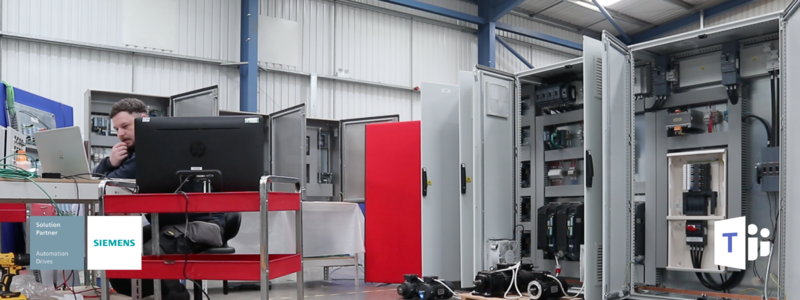How do you secure a FAT approval, if you cannot have people (or at least extremely limited numbers) in the factory? Find out what we've been up to...
The Covid-19 pandemic has forced all of us to change the way we live our lives and adapt because things are very different.
At DPS Group we are no different. We have had to think outside the box to find solutions which protect the integrity and safety of systems, whilst ensuring risk to our colleagues is mitigated at every opportunity.
We’re very focused on digital solutions, something that IIoT has enabled across the sectors we work in, and so in some ways you might say this global crisis has forced us (like many) to accelerate ideas and turn them into workable practice.
For example, we’ve been working on a major electrical, instrumentation and control project for one of our customer’s critical processes. This needs to be delivered later in 2020, and so there is an immovable time pressure.

As with any project of this nature it is essential to complete a Factory Acceptance Test and appropriate sign off.
But how do you secure a FAT approval, if you cannot have people (or at least extremely limited numbers) in the factory?
We have carried out software FATs, and simple verification testing remotely on previous projects, but it’s fair to say not at this scale.
That said, these previous experiences, gave us and our client full confidence that we could find a solution to carry out a complete hardware and software FAT remotely with only a minimal physical presence in our workshop.
The system we are building is significant in terms of scale, and it must integrate with an existing process control system.
We had two engineers in the workshop for the test, our Project Engineer and Control Systems Software Engineer worked remotely, with our client also monitoring from afar.
This project involved new Motor Control Panels, Intelligent Drive System and Remote I/O, all controlled from a Server/Client SCADA system, these were all powered and connected for the test, along with test Motors and simulation instrumentation.
Using Microsoft Teams, we were able to create a live, collaborative environment and with the session being recorded, all tests could be reviewed at a later date if required for clarification.
We host key documentation and information about our test protocols on Microsoft SharePoint. Clients are given access so that they can comment in real-time, providing valuable feedback. Approvals were managed this way, too.
The Test followed a typical Hardware/Software FAT with all components, devices and I/O being tested thoroughly.
Our engineer used a mobile device while connected to Teams to show our client the detail of the testing.
Siemens Totally Integrated Automation Portal (TIA Portal) provided us with a world-class platform to test our approach.
“This virtual FAT demonstrated that with the correct technology set-up and the competency of our team, travelling long distances to witness the process in person is not required. It was a complete success,” our client said.
“Overall the FAT was very successful in demonstrating the main requirements of the FAT - the hardware exists, it complied with the specification and was it completed to a satisfactory level for delivery to site.
“Hats off to you and the team for pulling this solution to together very early on in the Covid-19 lockdown when many others were still struggling to understand the situation.”
Our director Martin Brownlee was delighted with the success of the exercise.
Considering the timescales, we had to find a working solution for a virtual FAT, and so we are extremely pleased with the outcome,” he said.
“I'm very proud of our engineers for providing innovative solutions in an adverse situation.”
Martin revealed that our team at DPS Group continue to advance new digital options which drive efficiency, whilst providing the detail needed for many of the complicated systems we design, build, test and deploy.
“We are continuing to develop and test solutions for Remote Assistance with Augmented Reality
“We have also been using this for site support and commissioning which we will further be able to utilise in our FAT process," he said.
“Ultimately, we think with further development, enhanced test protocols with Microsoft SharePoint and Teams, alongside creating specific testing apps, this can be the way forward for many future projects.”
Interested in finding out more? Get in touch with us!

